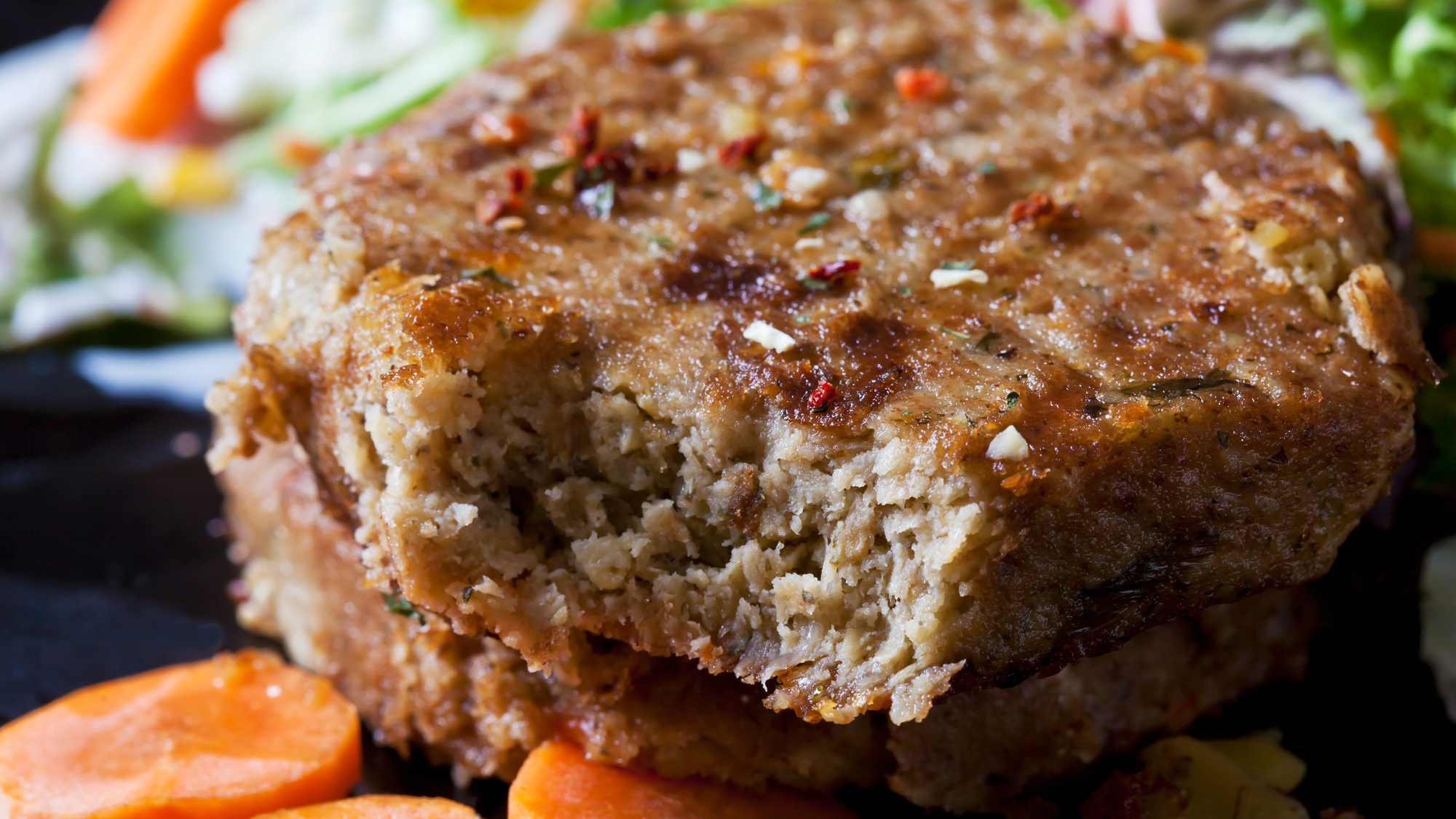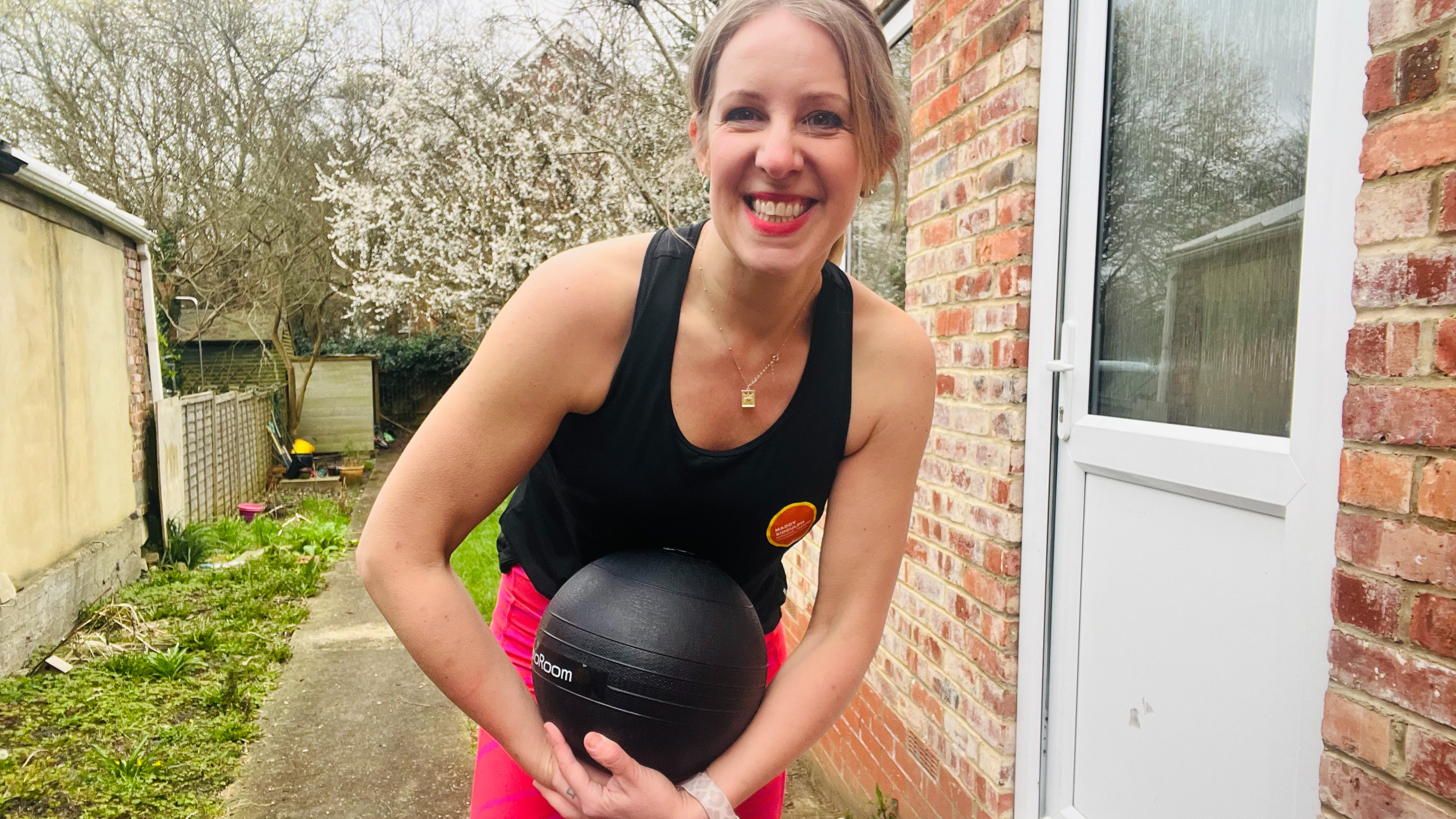Why meat-free burgers aren't always the 'healthy' option
Plant-based products mostly get a healthy rep but some meatless burgers can be just as fatty as a beef burger


With over 9.7 billion vegans in America it is no surprise that the market for plant-based produce is a fast and growing space.
The best vegan cookbooks have become an essential for many, with burgers a very popular item to ‘veganize’. They may be good for the planet but it turns out they might not always be that great for our health.
A report on the Harvard Health Publishing blog found that certain meatless burgers are “heavily processed and high in saturated fats."
It followed analysis of two particular meat-free burger brands - Impossible and Beyond - in comparison to a range of meaty rivals on nutritional information including total fat, saturated fat and sodium content.
On saturated fat, the meat-free options were either equal to an 85% lean ground beef burger (which contained 6 grams of sat fat), or - in the case of the Impossible Burger - even higher, at 8 grams.
Since the report was released, the Beyond Burger meatless patty does appear to have reduced its saturated fat content to 5 grams - but this is still relatively high.
Why does this matter? The American Heart Association states that eating foods high in sat fat increases cholesterol levels, which in turn can make you more susceptible to cardiovascular diseases including heart disease and stroke.
Get the Fit&Well Newsletter
Start your week with achievable workout ideas, health tips and wellbeing advice in your inbox.

The meat-free burgers analyzed in the report also contained much higher levels of sodium - between 370 and 390mg - compared to the beef burger (80mg), a ground turkey burger (70mg) and a Sunshine black bean burger (190mg). This is around one-quarter of the AHA's 'ideal' daily sodium intake limit of 1,500mg.
A diet high in sodium can lead to high blood pressure, also a leading cause of heart disease and stroke. If you're concerned about your own levels, take a look at our guide on how to reduce your sodium intake.
However, this doesn't mean that you should necessarily avoid eating plant-based food. In fact, the article's author goes on to note how meatless burger brands often add vitamins and minerals like Vitamin B12 and Zinc, which are also found in animal proteins.
Meanwhile, nutritionist Ro Huntriss tells Fit&Well that there are many other plant-based burgers out there with lower fat intakes.
Ro adds, “If you choose to be fully plant-based, do pay attention to the nutrient profile of the products you choose and your overall diet to ensure that your diet is still balanced and includes all the nutrients you need."
Additionally, the way we cook things can impact how good or bad our meals can be for us. For example, frying food in lots of oil or butter can be bad for our cholesterol levels, which is why we have picked out the best health grills to use.
Jessica is an experienced fitness writer with a passion for running. Her career in journalism began in local news and she holds a Masters in journalism. Jessica has previously written for Runners World, penning news and features on fitness, sportswear and nutrition.
When she isn't writing up news and features for Fit&Well covering topics ranging from muscle building, to yoga, to female health and so on, she will be outdoors somewhere, testing out the latest fitness equipment and accessories to help others find top products for their own fitness journeys. Her testing pairs up nicely with her love for running. She recently branched out to running 10Ks and is trying to improve her time before moving on to larger races. Jessica also enjoys building on her strength in the gym and is a believer in health and wellness beginning in the kitchen. She shares all of this on her running Instagram account @jessrunshere which she uses for accountability and for connecting with like-minded fitness lovers.
-
 This might be your last chance to get my favourite waterproof walking shoe, and it's 25% off
This might be your last chance to get my favourite waterproof walking shoe, and it's 25% offDeal These Adidas Gore-Tex shoes are the most watertight I've tested
By Lou Mudge
-
 I tried wall balls for 30 days and the results surprised me
I tried wall balls for 30 days and the results surprised meTry this fitness challenge to boost total body strength
By Maddy Biddulph